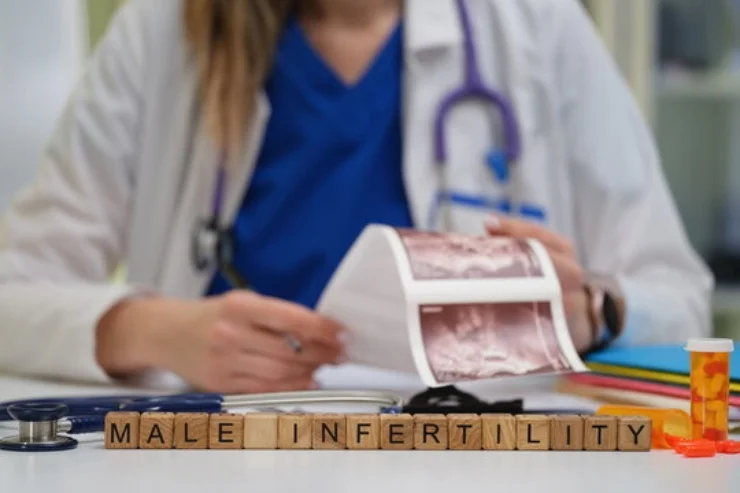Male Infertility
- Home
- Male Infertility

Male Infertility
Male infertility refers to the inability of a male to achieve pregnancy in a female partner after one year of regular, unprotected sexual intercourse. It is a common issue that affects a significant percentage of couples trying to conceive and can be attributed to various factors, including hormonal imbalances, anatomical abnormalities, and environmental influences.
Causes of Male Infertility
- Testicular Factors: Disorders affecting sperm production, such as congenital conditions (e.g., Klinefelter syndrome), infections (e.g., mumps), and injuries.
- Hormonal Imbalances: Issues with the hypothalamus, pituitary gland, or testes can affect hormone levels crucial for sperm production.
- Genetic Factors: Chromosomal abnormalities can affect fertility, such as Y chromosome microdeletions or other genetic syndromes.
- Environmental Factors: Exposure to toxins, pesticides, heavy metals, and radiation can impair fertility.
- Lifestyle Factors: Obesity, smoking, excessive alcohol consumption, and drug use can negatively impact sperm health.
- Obstructions: Blockages in the reproductive tract, such as those caused by vasectomy, injury, or congenital abnormalities, can prevent the passage of sperm.
Diagnosis of Male Infertility
Diagnosing male infertility typically involves several steps, including:
- Semen Analysis: A key test that evaluates sperm count, motility (movement), morphology (shape), and overall semen health.
- Hormonal Testing: Blood tests to measure hormone levels, including testosterone, luteinizing hormone (LH), and follicle-stimulating hormone (FSH).
- Genetic Testing: Analysis of chromosomes and genetic markers to identify any genetic causes of infertility.
- Imaging Tests: Ultrasound or MRI may be used to assess anatomical abnormalities or blockages in the reproductive system.
Treatment Options for Male Infertility
Treatment for male infertility depends on the underlying cause and may include:
- Lifestyle Modifications: Improving diet, maintaining a healthy weight, ceasing smoking, and minimizing alcohol intake can enhance fertility.
- Medications: Hormonal therapy or medications to treat infections or erectile dysfunction may be prescribed.
- Surgical Interventions: Surgical procedures can correct anatomical issues or remove obstructions in the reproductive tract.
- Assisted Reproductive Technologies: Options such as intrauterine insemination (IUI) or in vitro fertilization (IVF) can be utilized, depending on the couple’s specific situation.
- Sperm Retrieval Techniques: In cases of obstructive azoospermia (no sperm in the ejaculate), techniques such as testicular sperm extraction (TESE) or percutaneous epididymal sperm aspiration (PESA) can be used to retrieve viable sperm.
It is essential for couples facing infertility to consult with a healthcare provider or a fertility specialist for a thorough evaluation and personalized treatment options.
